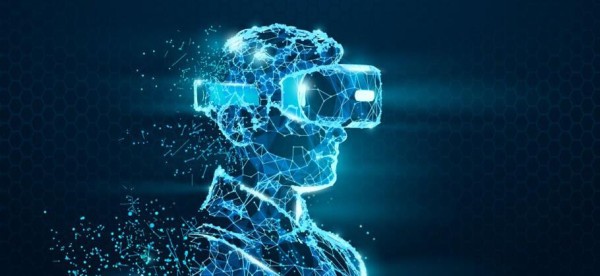At the GDC 2019 conference three years ago, Google CEO Pichai officially released Google’s cloud gaming service “Stadia”. Since then, the cloud game track began to soar, from Amazon’s Luna, to Microsoft’s xCloud, Sony’s PS Now, Tencent’s START, technology giants have released their own cloud game business. Cloud games have been developing rapidly for a time, and the prosperous track makes people think they have seen the direction of future innovation in the game industry.
But three years later, the cloud games led by the tech majors have more or less failed to reach the initial expectations. And at the advent of the Web 3 revolution, can cloud gaming combine with web 3 to create a new paradigm?

How the Token Economy Solves the Cost Problem of Cloud Gaming
What are the problems with the cloud games that the tech majors have gone under? The first and foremost is the high cost. (Includes financial investment, time cost, etc.) From the point of view of the existing centralized cloud games, the asset-heavy properties of cloud games will be held back even by the trillion dollar technology giants in terms of market value. Similar to the streaming business, network bandwidth and server traffic have always been the key to limiting such business. And even more so than streaming, video only requires a unified data source to be transmitted, while cloud gaming is equivalent to each user having to watch a unique game screen, which also puts more pressure on servers.
In the Web2 model, cloud game vendors need to continuously invest resources to expand their computing and network capacity, and use the built network as a leverage to charge players. This is not a reasonable model for creating endogenous value. When the Web3 era comes, the introduction of decentralization and tokens will improve the situation to a great extent.
In the design of Portalverse, high costs can be turned into benefits for different players within the ecosystem through token distribution and payment. Web3 transfers network value to users by means of tokens, turning them into system builders from the beginning and spontaneously forming community management, which will generate more possibilities for development within the project.
For the users, the equipment that is not normally used can no longer be down and idle. Specifically, owners of gaming devices (graphics cards and CPUs) can set up nodes and become part of the maintenance network, thus participating in the construction of the network and earning revenue by providing computing power to users. In Portalverse’s token economics, up to 40% of POV tokens are set aside as a block-out bonus as a potential income for compute power providers, block curers, and block producers.
Decentralized game ecosystem
In the traditional game industry, the division of interests between developers and game platforms is also always ambiguous. Various kinds of exclusive or first release games have always troubled players to travel freely in different games. The situation becomes even more confusing when the centralized cloud games with giant attributes appear.
The conflict between developers and distribution platforms over pricing power and dominance has harmed most players and developers.
Within Portalverse’s ecology, there is no monopoly or restriction of a centralized platform, and both game developers and game players can get the maximum benefit of the game ecology. In the first phase of the ecology, Portalverse plans to provide a large number of popular games from the web2 era. In the future, native Web3 games will be gradually introduced to facilitate users to enter the web3 world in a non-perceptive state, and eventually let web2 players and web3 game world gradually integrate together. And we will continue to incubate Web3 native developers.
In Portalverse, game content packages are first developed and maintained by game developers, and when players start playing and log in to their accounts, the games automatically load users’ data from the game operator’s servers and serve it to users. In turn, tokens are used as a means of using the network with rewarding the developers.
Metaverse Infrastructure Framework
In the traditional gaming industry, players do not have full ownership of their digital versions of games. And another problem that plagues players is that digital assets within games are not interoperable across platforms, products, and games. This is very centralized and Web2 form of assets.
For players, after working hard to earn a lot of in-game assets in one game, they will immediately be broke again when they enter a brand new game. The advent of blockchain and tokens solves such problems.
Portalverse allows in-game assets to circulate freely without permission. This protects the user’s ownership of personal data while giving them greater autonomy. With the gradual realization of the metaverse, it will be far easier for users to carry their own data and assets between products than it is today to migrate from one platform to another, where the tech giants have a monopoly.
In future plans, Portalverse will be more than a cloud gaming platform; it will be a metaverse world that incorporates UGC content, social, DeFi and GameFi. Miners provide the underlying computing power for Portalverse; a network of native content providers, game engine providers, and hardware providers provide the products that drive endogenous growth; and various native protocols integrate the various players within the ecosystem and are responsible for the distribution of incentives.
It can be said that Portalverse is not just a decentralized cloud gaming platform, but a meta-universe infrastructure framework driven by game content and player-users. The project may host the passage from Web2 users to Web3, a virtual world that can truly accommodate a wide range of people online at the same time and generate countless interactions.
Media Contact
Company Name: Portalverse labs PTE LTD.
Contact Person:
Email: Send Email
Country: Singapore
Website: http://meta-oasis.mxtt.info














